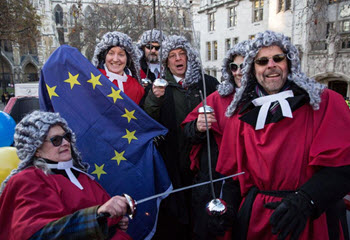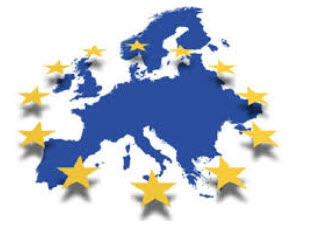Brexit challenge expected to quickly reach Supreme Court
The lawsuit seeking to force Prime Minister Theresa May to obtain an Act of Parliament before commencing Britain’s departure form the EU may reach Supreme Court by December 2016.
 “The court takes this litigation very seriously and will move expeditiously,” Judge Brian Leveson said in a hearing Tuesday July 19, adding that the case is of such constitutional importance it is difficult to see why it won’t move quickly to the Supreme Court after a two-day hearing that starts October 15.
“The court takes this litigation very seriously and will move expeditiously,” Judge Brian Leveson said in a hearing Tuesday July 19, adding that the case is of such constitutional importance it is difficult to see why it won’t move quickly to the Supreme Court after a two-day hearing that starts October 15.
If the Supreme Court finds that an Act of Parliament is required for the Prime Minister to invoke Article 50 of the Treaty on European Union, it could give lawmakers an opportunity to derail Britain’s exit from the European Union.
Lead claimant in the law suit is Gina Miller, who Leveson was quoted referring to as a “concerned citizen”. British hairdresser Deir Dos Santos will also be party to the proceedings, as well as several expats, including a group of U.K citizens currently residing in France.
The formal name of the case is Santos v. Chancellor for the Duchy Lancaster, CO/3281/2016, High Court of Justice, Queen’s Bench Division, Administrative Court (Jul 19, 2016).
According to Gina Miller’s lawyer David Pannick, several people who had planned to join the lawsuit alongside Miller et al dropped out due to racist and anti-Semitic abuse. Judge Brian Leveson confirms that certain individuals have been “regressive, abusive and threatening” and he has stated that he will redact names from documents. Leveson has also ensured that the court “will deal severely with anyone who intervenes with the course of this litigation”.
Treaty on European Union – Article 50
 1. Any Member State may decide to withdraw from the Union in accordance with its own constitutional requirements.
1. Any Member State may decide to withdraw from the Union in accordance with its own constitutional requirements.
2. A Member State which decides to withdraw shall notify the European Council of its intention. In the light of the guidelines provided by the European Council, the Union shall negotiate and conclude an agreement with that State, setting out the arrangements for its withdrawal, taking account of the framework for its future relationship with the Union. That agreement shall be negotiated in accordance with Article 218(3) of the Treaty on the Functioning of the European Union. It shall be concluded on behalf of the Union by the Council, acting by a qualified majority, after obtaining the consent of the European Parliament.
3. The Treaties shall cease to apply to the State in question from the date of entry into force of the withdrawal agreement or, failing that, two years after the notification referred to in paragraph 2, unless the European Council, in agreement with the Member State concerned, unanimously decides to extend this period.
4. For the purposes of paragraphs 2 and 3, the member of the European Council or of the Council representing the withdrawing Member State shall not participate in the discussions of the European Council or Council or in decisions concerning it.
A qualified majority shall be defined in accordance with Article 238(3)(b) of the Treaty on the Functioning of the European Union.
5. If a State which has withdrawn from the Union asks to rejoin, its request shall be subject to the procedure referred to in Article 49.
- Posted by
 admin
admin - Posted in Uncategorized
 Jul, 29, 2016
Jul, 29, 2016 Comments Off on Brexit challenge expected to quickly reach Supreme Court
Comments Off on Brexit challenge expected to quickly reach Supreme Court
Latest news
- Consequences of Brexit
- MiFID II & Brexit
- Referendum followed by 106% rise in Irish passport applications from Britain in November
- Brexit Britain: Is the economy tanking?
- Brexit Britain: What’s going on?
- No current plans for a British independence day on June 23
- UKIP: James quits; Farage steps back in
- Brexit challenge expected to quickly reach Supreme Court
- Will there be a second Scottish independence poll?
- Stock markets plummet in the wake of Brexit – investors looking for alternative investments

 (Closed)
(Closed)